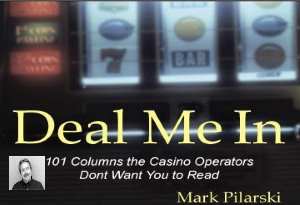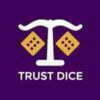As to table games, you have mentioned that in roulette and craps, each spin of the wheel and each toss of the dice are based on independent events. Why wouldn’t blackjack be in this same category? The cards are randomly shuffled, so wouldn’t each individual blackjack hand also be considered independent from another? John C.
Yes, John, you are correct in stating that each individual spin on a roulette wheel or toss of dice on a crap game should be treated as an independent event. Roulette balls and dice have neither memory nor clairvoyance. No amount of past history (looking backwards from a streak) on a random, non-biased wheel or legal die cubes predicts a future outcome.
Yet, although the first hand of blackjack dealt from a randomly shuffled full deck consists of randomly selected cards with equal likelihoods of being selected, the same cannot be true of any following hand, since no following hand can have in it any of the cards already dealt. In card games, what has happened in the past DOES affect what will happen in the future.
The odds constantly shift as cards are dealt from the deck. Blackjack players who count cards, are constantly trying to determine the comparative presence of 10s and non-10s in the deck. That information determines whether the deck is favorable to the house or to the player at any given moment. When the balance favors the player, he or she would increase the bet. Conversely, when the deck favors the house, the player would wager less.
With the other two games mentioned, those tools of gambling (roulette ball and dice) have neither memory or consciousness. They are just blind tools of the trade, whose composition doesn’t change during play, and which cannot affect the odds of the game in any way. But a shoe that’s showing, say, plus 10 for the player isn’t independent at all, but a golden opportunity for a player to not only increase his or her next bet, but to enjoy a much higher probability of winning.
On a jackpot of $1,200 or more, is there any way I can legally avoid receiving a W2-G? Say for instance on a $1,200 jackpot, can I ask the casino to pay me less than the full amount? Mel T.
According to IRS, the casino must issue you a W2-G if a slot machine win is above $1,200. The way you can circumvent receiving one is by refusing the money altogether. Let me know when you do that, Mel. Better yet, call me. I’ll claim the jackpot and gladly pay the taxes.
As for asking the casino to shortchange you on your windfall to dodge a W2-G, off the cuff, I’d say, notta chance. In the joints I worked, we wouldn’t for two reasons; accounting–the pencil pushers upstairs like things balanced–and collusion. Being that all gambling winnings are technically taxable, Uncle Sam getting wind of a publicly traded company on the NYSE in cahoots with players trying to avoid paying taxes would be a bit unpleasant for all involved.
Gambling Wisdom of the Week: “Some of the opponents you will encounter in poker games will be more ruthless than any casino in taking your money.” –Jean Scott, More Frugal Gambling




















